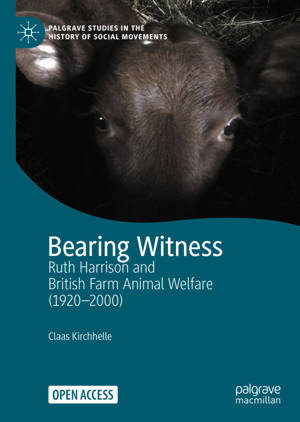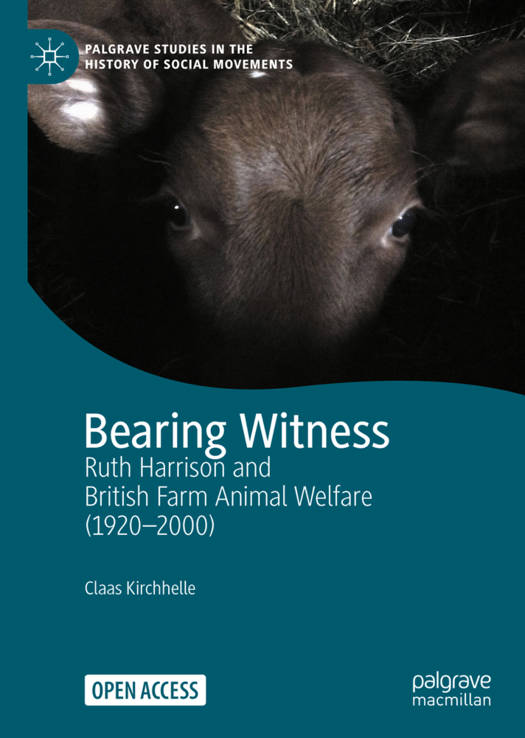
- Afhalen na 1 uur in een winkel met voorraad
- Gratis thuislevering in België vanaf € 30
- Ruim aanbod met 7 miljoen producten
- Afhalen na 1 uur in een winkel met voorraad
- Gratis thuislevering in België vanaf € 30
- Ruim aanbod met 7 miljoen producten
Zoeken
€ 52,95
+ 105 punten
Uitvoering
Omschrijving
This open access book is the biography of one of Britain's foremost animal welfare campaigners and of the world of activism, science, and politics she inhabited. In 1964, Ruth Harrison's bestseller Animal Machines triggered a gear change in modern animal protection by popularising the term 'factory farming' alongside a new way of thinking about animal welfare. Here, historian Claas Kirchhelle explores Harrison's avant-garde upbringing, Quakerism, and how animal welfare debates were linked to concerns about the wider ethical and environmental trajectories of post-war Britain. Breaking the myth of Harrison as a one-hit wonder, Kirchhelle reconstructs Harrison's 46 years of campaigning and the rapid transformation of welfare politics and science during this time. Exacerbated by Harrison's own actions, the decades after 1964 saw a polarisation of animalpolitics, a professionalisation of British activism, and the rise of a new animal welfare science. Harrison's belief in incremental reform allowed her to form ties to leading scientists but alienated her from more radical campaigners. Many of her 1964 demands gradually became part of mainstream politics. However, farm animal welfare's increasing marketisation has also led to a relative divorce from the wider agenda of social improvement that Harrison once bore witness to. This is the first book to cast light on the interlinked histories of British farm animal welfare activism, science, and legislation. Its unique scope allows it to go beyond existing accounts of modern British animal welfare and will be of interest to those interested in animal welfare, environmentalism, and the behavioural sciences.
Specificaties
Betrokkenen
- Auteur(s):
- Uitgeverij:
Inhoud
- Aantal bladzijden:
- 271
- Taal:
- Engels
- Reeks:
Eigenschappen
- Productcode (EAN):
- 9783030627911
- Verschijningsdatum:
- 6/05/2021
- Uitvoering:
- Hardcover
- Formaat:
- Genaaid
- Afmetingen:
- 148 mm x 210 mm
- Gewicht:
- 508 g

Alleen bij Standaard Boekhandel
+ 105 punten op je klantenkaart van Standaard Boekhandel
Beoordelingen
We publiceren alleen reviews die voldoen aan de voorwaarden voor reviews. Bekijk onze voorwaarden voor reviews.











